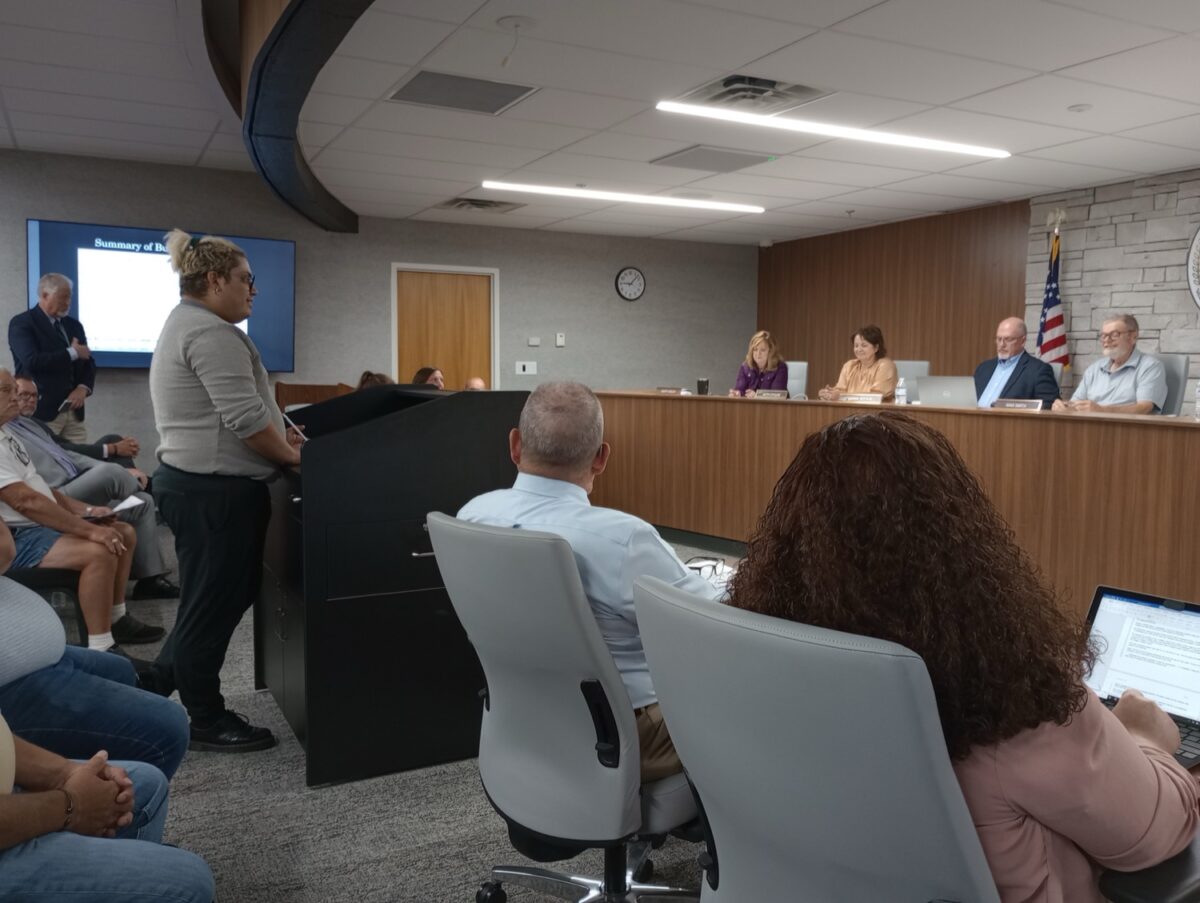Concerns about Richmond residents being taxed by both the county and city for their vehicles stopped Wayne County Council from enacting local option highway user taxes Aug. 20, while indicating it’s a temporary delay of the inevitable.
Council voted 4-3 in favor of enacting an excise tax surcharge on passenger vehicles, small trucks, motorcycles, mopeds and small trailers and a wheel tax on large trucks, large trailers, buses and RVs. A unanimous vote was necessary, however, to enact the taxes during the session.
Council scheduled another public meeting about LOHUT for 6 p.m. Monday, Aug. 25, in the Wayne County Administration Building’s chambers. A simple majority is necessary then to implement the taxes for 2026.
Jeff Cappa, Beth Leisure and Misty Hollis voted against the taxes. All cited the possibility that Richmond could also enact a wheel tax, with city residents paying both the county and city taxes.
“I hate to make decisions based on what the city might do,” Leisure said. “It’s not that I don’t know we need it.”
Council members hope the legislature in 2026 will alter state law to eliminate the double payments.
Hollis also said the amount the taxes raised would not cover the shortfall in highway and bridge funding and the county has enough funding to cover a year’s shortfall before making a final LOHUT decision.
Wheel tax discussions have occurred before at the county level; however, none gained traction. The difference this year is that the state legislature changed how it will distribute highway funds to counties and municipalities. Legislators decreased funding for the Community Crossings matching grant program that has netted the county $4,210,976.19 since 2016 and created a new distribution based on lane miles. The eligibility requirement for lane-mile funds, which will first be distributed during January 2027, is having enacted a wheel tax.
Members of the public speaking in favor of enacting the tax acknowledged that while adding the tax is not ideal, after multiple rounds of cuts to government budgets, it is essential for maintaining county infrastructure. “Clearly the only option we have is to bring in new revenue,” said Richmond resident Nick Dunlap. “Roads and bridges don’t repair themselves. We have to do this, pay this tax, to get more funding to keep our bridges and roads safe.”
Opponents of the wheel tax speaking during the public hearing pleaded with council not to pay “the blackmailer,” because of the state’s requirement. Council members, however, said accessing the lane-mile funds changes the dynamics of LOHUTs. Council President Max Smith said that the state takes $15 from each vehicle registration with the Bureau of Motor Vehicles. Without the LOHUT, Wayne County would not receive back the money its residents pay.
Wayne County has 1,370 lane miles that would bring an initial payment of between $1.5 million and $2.1 million, according to county estimates. Payment size depends on how many counties and municipalities enact LOHUTs prior to the Sept. 1, 2026, deadline currently set for eligibility to receive a 2027 payment.
Also by a 4-3 vote, council amended the LOHUT ordinance so the excise tax surcharge would be the maximum permitted 20% of the excise tax with a $7.50 minimum and the wheel tax would be a $40 fee, which is half the maximum allowed. Brandon Sanders, the county engineer, said residents would pay the $7.50 minimum on 66% of Wayne County vehicles falling under the surcharge categories. The excise tax is based on a vehicle’s original value, and it decreases each year the vehicle ages. The maximum surcharge is $212.60 for new vehicle costing more than $42,500.
LOHUTs are collected by the BMV when vehicles are registered annually. The BMV takes a fee, then provides the rest to the county. Based on 2024 vehicle data, Sanders estimates the county’s LOHUT taxes would generate $1,612,503 if implemented in 2026; however, the county shares that with Richmond and 13 towns. The county would receive 48% and Richmond 40%; the towns would split the remaining 12%.
Mayor Ron Oler urged council to enact the maximum taxes, indicating if they did, he would not seek city LOHUT taxes. With a Sept. 1 deadline to enact the taxes for 2026, Oler said the city would see how much it receives from any county LOHUT taxes next year before considering its own LOHUTs. The city can enact a surcharge between $7.50 and $25 (it’s not eligible to enact a percentage) and a wheel tax between $5 and $40.
By implementing LOHUT taxes, the city also would become eligible for funding based on its 296 lane miles of roads.
The council meeting was broadcast and recorded by WCTV:
A version of this article appeared in the August 27 2025 print edition of the Western Wayne News.

